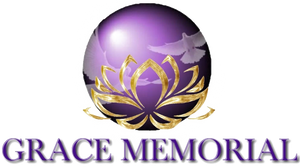Grief Support and Resources
When Death Occurs
After a loved one dies, you and your family have many decisions to make. Our staff will help guide you through the process and help make those decisions.
Contact the proper authorities.
A legal pronouncement of death must be declared before any decisions can be made.
Begin to make arrangements.
Once your loved one has been declared dead you and your family can proceed with making any type of funeral arrangements. Your loved one may have pre-planned any type of services, and you and your family should first investigate those choices. If your loved one has not made any previous type of arrangements, and you have decided on which funeral home you would like to use for the services, you will contact them and meet with the funeral director and begin discussing options.
Documents and Information Funeral Directors May Need
Information Required:
- Full name and address
- Marital status
- Race/Ethnicity
- Date and city of birth
- Highest level of education
- Father’s name, mother’s maiden name
- Name of spouse
- Occupation and employer
Documents
- Account statements
- Beneficiary designations
- Life insurance policies
- Military discharge papers (form DD 214)
- Social Security number
Take Care of Personal Property
Following the death of your loved one, you need to secure your loved one’s property.
Make sure their home and vehicle are properly secure. If your loved one has a pet, make the necessary arrangements for the pet to be taken care of.
Any mail that comes to your loved one should be forwarded to a family member that plans to handle the deceased’s estate. Any mail that piles up at a vacant home only alarms potential intruders that a home is empty.
Make sure to contact the deceased’s boss and inform them of the death. If your loved one had any upcoming appointments, make contact to notify them about the death and cancel the appointment.
Grief Resources
Individual counselling, local grief support groups, and online websites may help in working through your grief.
GriefShare is a nationwide network of groups of people who meet weekly to share and support each other during the grief recovery process. Visit www.griefshare.org to find a support group near you.
Online resources include discussion forums, educational tools, and a community for people who are dealing with grief. You may find one or more of the following websites to be helpful:
The Grieving Process
Everyone handles the loss of a loved one in their own way. We all experience some common feeling as we work towards healing. There are five commonly observed stages that people experience during the grieving process. These stages are denial, anger, bargaining, depression, and acceptance.
At the beginning, you may feel a sense of detachment, shock, or numbness. You may even wonder why you are not more upset over your loss.
Anger provides a bridge of connection from the initial numbness of grief. You may find yourself angry at the doctors, your family, the loved one who died, or at God. Anger is a necessary stage of the healing process.
Guilt often accompanies bargaining. You may wonder if you could have done anything differently so that your loved one might still be alive.
To not experience depression after a loved one dies would be very unusual. Depression is a necessary step toward healing.
Eventually, you move into the acceptance stage of grief. As you move through this stage, you will find yourself once more interested in and able to enjoy some of the things that you formerly liked to do. You may develop new interests and relationships.
Need more information? Call us at (682) 250-6619 to speak with one of our experts.
Contact Information
Phone: (682) 250-6619
Email: info@gracememorialfhac.com
Address: 4551 James Ave, Fort Worth, TX 76115, USA
Business Hours:
- Mon - Fri
- -
- Sat - Sun
- Closed
Our phones are open 24 hours.
